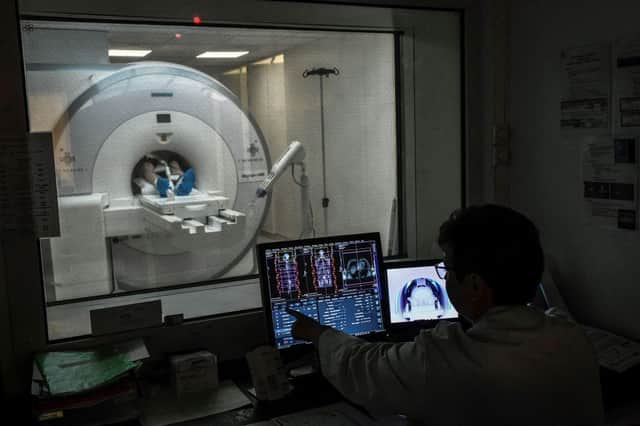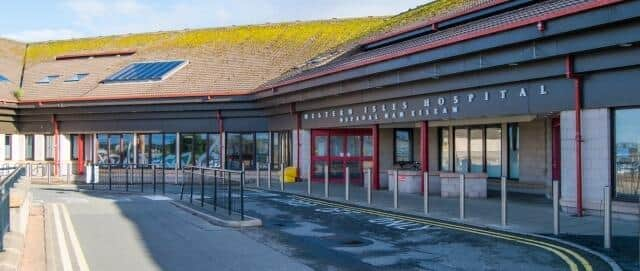£2.4m support for new island-based MRI scanner


The health board will now move to procure and install a Magnetic Resonance Imaging (MRI) facility in the Western Isles Hospital in Stornoway and it is anticipated, given the scale of work required, that the scanner will be in use as early as autumn 2024.
There are currently no MRI facilities available in the Western Isles and up to 1,100 scans of residents are being carried out at mainland hospitals each year.
Advertisement
Hide AdAdvertisement
Hide AdMRI scanning, a highly specialised technique, is now a standard radiological tool for both emergency and planned care, and is the investigation of choice for many conditions that could soon be managed in the Western Isles with the introduction of this new service.


NHS Western Isles Medical Director, Dr Frank McAuley, said: “The reality of a MRI scanner based at Western Isles Hospital offers huge improvements in patient pathways, including those involving cancer or neurological conditions. Reduced reliance on mainland resources will impact on patient travel requirements, an issue causing an increased impact on all involved. This is excellent news.”
Public Health Minister, Jenni Minto, said: “An MRI scanner for the Western Isles will ensure that patients are able to receive more diagnostic tests on the islands, and can therefore avoid travelling to the mainland. The scanner will also help clinical teams diagnose and treat the cause of patients’ symptoms faster and get them the care and treatment they need earlier.”
A locally based service is expected to significantly reduce the annual figure of 1,060 patient journeys to the mainland for scans. It will also improve “continuity of care”, meaning that many patients will have immediate access to an MRI scanning service without having to travel to the mainland.
Advertisement
Hide AdAdvertisement
Hide AdThe current combined annual costs related to scanning, which takes into account contracts with other Health Boards and patient travel and expenses, equates to £1 million and the new service will cost approximately £300,000 less than the current arrangement.
In a joint statement, NHS Western Isles Chair, Gillian McCannon, and Chief Executive, Gordon Jamieson, said: “Having an MRI scanning service has been an aspiration of NHS Western Isles for many years and the fact that this funding has now been approved is wonderful news for our population. Introducing MRI scanning to our services will positively transform the patient experience, meaning that significant numbers of patients will no longer have to travel to the mainland and endure extended overnight stays for this important investigation. Having a scanner on-island will also help us to reduce diagnostic waiting times with the scanner available for planned and urgent care patients. In addition to the direct clinical management benefits we will also reduce travel costs and greenhouse gas emissions.
“Looking to the future having this modern piece of equipment will help boost the recruitment and retention of clinical staff to the Western Isles; a vital step to ensure the sustainability of Western Isles services.”